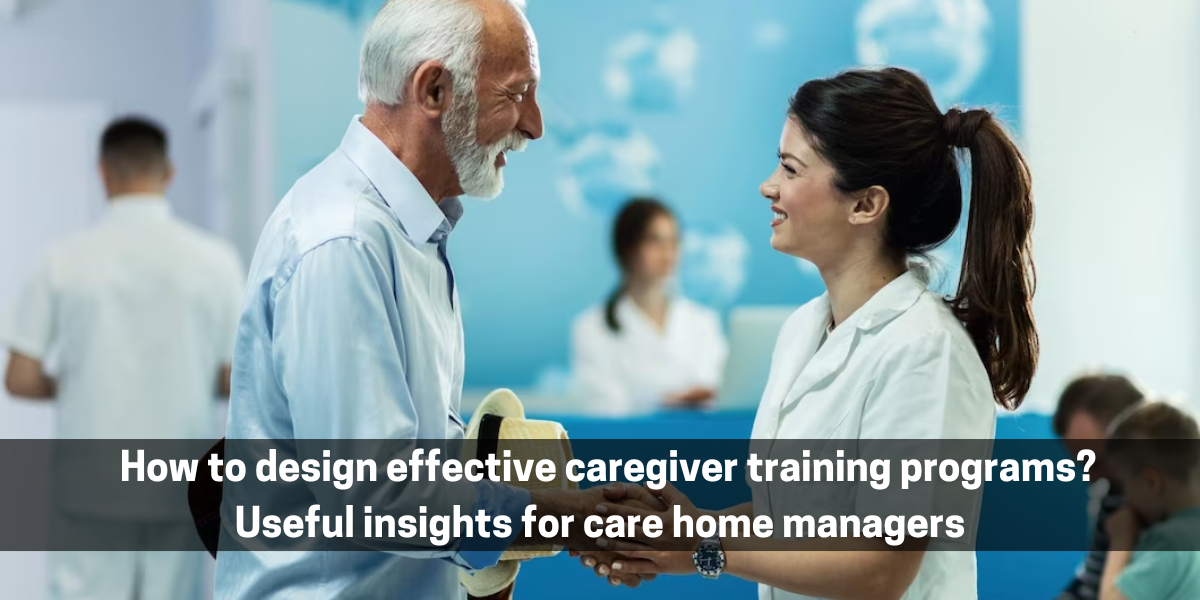Running a successful care home requires adequate training for caregivers. An effective training program can play a crucial role in staff retention, which can ultimately help reduce costs associated with hiring new caregivers. Through caregiver training, employees can enhance their skills and boost their confidence levels. If you’re wondering where to begin with your training program, it’s important to understand what your caregivers need and want to learn. Here we discuss some of the components of a successful caregiver training program:
- Fundamentals of caregiving: Caregiving is a noble profession that demands a diverse set of skills and qualities to provide compassionate care to patients. Here are some essential traits that make a good caregiver:
- Empathy and compassion go hand in hand—a caregiver who understands their patients on a deeper level, feels for them emotionally, can relate to the challenges they face.
- Caregiving requires patience and diplomacy. Patients may have varying needs, demands that can put a caregiver under pressure; still they must remain calm and composed in order to handle challenging situations diplomatically.
- Kindness is an essential quality that defines a good caregiver. Patients rely on their caregivers to make their daily lives easier and more comfortable. A kind caregiver with a warm heart can provide comfort and support to their patients, and help improve their quality of life.
- Communication skills are crucial for caregivers, and this means more than just talking – it means listening attentively to the residents’ needs. It is important to speak slowly and clearly, and to be aware of a resident’s body language. Having knowledge about the disease and common behaviours associated with the disease in these situations can also be helpful.
- Training on Alzheimer’s and dementia care: It is an essential component of any caregiver training program. Alzheimer’s and other forms of dementia can significantly affect a resident’s memory, behaviour, and ability to communicate effectively. Caregivers who receive specialised training in this area will be better equipped to provide high-quality care. Training on Alzheimer’s and dementia care should cover a range of topics, including an understanding of the disease, how it progresses, and how it affects residents. Caregivers should also be trained on how to handle common behaviours associated with Alzheimer’s and dementia, such as wandering, agitation and aggression. Training should also cover the importance of providing a safe and comfortable environment. Caregivers should be trained on how to adapt the resident’s living space to accommodate their needs, how to ensure that they receive proper nutrition and hydration and how to assist with activities of daily living.
- Soft skills development: For healthcare professionals, possessing strong soft skills is critical, as they impact residents, team members and interdisciplinary colleagues. These skills are often a determining factor in how residents rate their overall experience during a healthcare visit. To help the staff develop soft skills, it is important to first identify which skills need improvement. This will help you create a training plan to enhance these skills. The next step is to practise the skills. Some skills can quickly become a habit through daily practice, while others may require more time and effort. For instance, if the lacking skill is time management, the caregiving staff should focus on learning proper planning and organisation skills and incorporate them into their daily routine.
- eMAR chart training: eMAR (Electronic Medication Administration Record) is an essential tool for healthcare professionals for many different reasons. First and foremost, it helps prevent medication errors by ensuring the patient receives their correct dose at all times. Also, proper training enables healthcare professionals to use the technology effectively, administering the correct medication dosage and route of administration. This helps avoid adverse drug reactions—as well as other issues that could harm residents. eMAR helps caregivers with the electronic record of medication administration that is essential for compliance with regulations and standards of care. Proper use of the technology ensures that documentation is accurate and complete, which is important for audits and regulatory compliance. To know more about eMAR and how it can help care homes, book a demo today. Should you decide to proceed, all eMAR chart training and setup can be implemented remotely for you.







